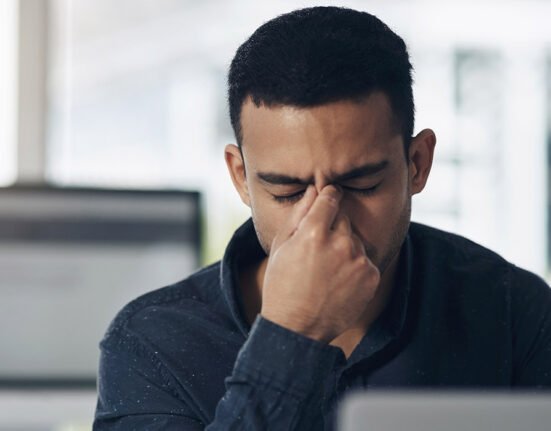Blushing is a common but poorly understood phenomenon that raises several mysteries. Although it is a noticeable alteration to our most defining characteristic, it can happen when we least expect it to and may even call attention to our actions. We blush not only when we make a mistake, but also when we receive compliments or gratitude. A blush is an uncontrollable and involuntary emotion; an actor can mimic a frown, a grin, or laughing, but not a blush. Being accused of blushing can cause you to blush, and blushing is intensified when you are aware that you are blushing.
Why should we react in this certain way to social situations? While the paleness of panic can be explained by blood flowing from the skin to the skeletal muscles, the reason why embarrassment over some types of social situations should cause blood to flow more to the face is less clear.
Why do we blush?
According to cosmetic dermatologists, blushing is an evolutionary response from an elevated neurological system. “It’s linked to our innate fight-or-flight response, or how our body reacts in an emergency,” she continues. Nevertheless, humiliation, trepidation, or anxiety—whether from a botched phone call or a first kiss—serve as the catalyst for reaction rather than dread.
Also Read: What Is The Psychology Behind Phobias?
Blushing and Self Conscious
Blushing is linked to self-consciousness in the sense of envisioning our appearance to others, which is one recurring subject. He stated that the “mental states which induce blushing consist of shyness, shame, and modesty; the essential element in all being self-attention,”Darwin linked the blush to self-attention. What causes a blush is not only thinking about how we look; rather, it is worrying about what other people may think of us.
Drummond and Mirco (2004) carried out an interesting test of the attention theory, finding that while a subject sang or read aloud, staring at one side of her face increased cheek warmth and measured blood flow at that side but not at the unattended side.
Others contend that unwanted social attention is what causes a blush. According to Leary et al. (1992), blushing can occur in four different groups of situations:
- (a) dangers to one’s public persona, including standards, breaches, poor performances, losing one’s composure, and acting inappropriately
- (a) Being scrutinized more readily, as evidenced by conspicuousness and center of attention
- (c) commendation and favorable attention;
- (d) claims of flushing
How Blushing Occurs?
- The instinctive reaction of blushing is beyond your cognitive control. You cannot will your heart to stop pumping blood or your lungs to stop inhaling air; neither can you stop the blood from flowing to your face.
- Blushing is a natural aspect of your body’s emergency response system, also known as the “fight-or-flight” mechanism. In an emergency, your heart rate and breathing rate needs to accelerate in order to pump as much oxygen as possible to your muscles and organs, directing all available energy to your muscles. Your pupils must enlarge to let in more light as you will probably benefit from a keen vision.
- Every single one of these emergency reaction mechanisms is brought about by adrenaline. The adrenaline, the body’s natural stimulant, causes your pupils to dilate and your respiration to quicken. Additionally, it causes the blood vessels deep within your muscles to widen, allowing more oxygen and energy to reach the areas that need them most. Your face’s veins enlarge as well. Your cheeks get warmer and more red when they open up to let in more blood. You’re Blushing.
Also Read: The Healing Power of a Good Listener
Advantages for Those Who Blush Easily
When someone has the audacity to draw attention to how red your face is, blushing can make an embarrassing situation feel infinitely worse.
1. A Better romantic partner
It appears that some people find flaming red cheeks to be cute. Researchers at UC Berkeley discovered that individuals who blush readily reported higher levels of monogamy.
2. More Generous
Interestingly, according to a Journal of Personality and Social Psychology article, “individuals who are more embarrassed… behaved more generously than their less embarrassed counterparts” in research by handing out more raffle tickets.
3. Seems more Trustworthy
In a 2011 study, volunteers were matched against a computer in a traditional prisoner’s dilemma wherein they could only receive one year in prison if they remained silent, two years in prison if they exposed each other, or free if they condemned their opponent. An opponent who blushed was more likely to be trusted by participants than one who did not.
4. Vulnerability
Blushers are viewed as extremely delicate individuals. People who express their emotions honestly come across as emotionally open. Speaking with someone who blushes can be more consoling socially since it puts us at ease in their company and gives us confidence that they aren’t hiding anything, so we don’t need to be on guard.
Also Read: The Third Largest Mental Health Care Problem: Social Anxiety
5. More Empathetic
You blush because you know what other people think of you. It indicates that you’re more socially sensitive and don’t generally treat people badly.
“Being able to empathize with others and being aware of social cues are prerequisites for feeling embarrassed.,” Dr. Ray Crozier, who is the author of “Understanding the Blush” as well as “Blushing and the Social Emotions,”
6. Sincerity
Research indicates that blushing may be interpreted as a sign of sincerity. If someone’s cheeks are pink, people are more inclined to think they are being sincere. It is an authentic humanizing response.
7. It’s more probable that others will overlook your errors
Blushing can serve as a kind of nonverbal apology that upholds social norms and indicates that you are aware of your error.
Researchers from the Universities of Groningen and Maastricht found that people were more likely to overlook embarrassing moments like spilling coffee on someone or farting in an elevator when the faces in the pictures that went along with it had red cheeks.
Another Side of Blushing
People with social phobia, an anxiety disorder in which the sufferer has intense and ongoing anxiety in social and performance circumstances and fears being judged, criticized, mocked, or humiliated, frequently exhibit severe facial blushing.
Symptoms of extreme blushing
Among the signs of extreme face blushing are:
- Intense blushing, frequently without any obvious cause.
- Heat sensation on the face.
- Sweat
Conditions that might cause extreme blushing
Almost any circumstance can cause severe flushing (a casual conversation with friends is a common trigger, for example), and it may take one or two minutes for the blush to go away.
Someone who blushes a lot may find it challenging to feel at ease in social or professional settings. Individuals with social anxiety are especially prone to blushing.
References+
- https://www.bustle.com/articles/147997-5-unexpected-social-benefits-of-blushing
- https://www.bps.org.uk
- https://www.rug.nl/gmw/psychology/news/de-positieve-effecten-van-blozen?lang=en https://www-psychologytoday-com
- https://amp-theguardian-com













Leave feedback about this